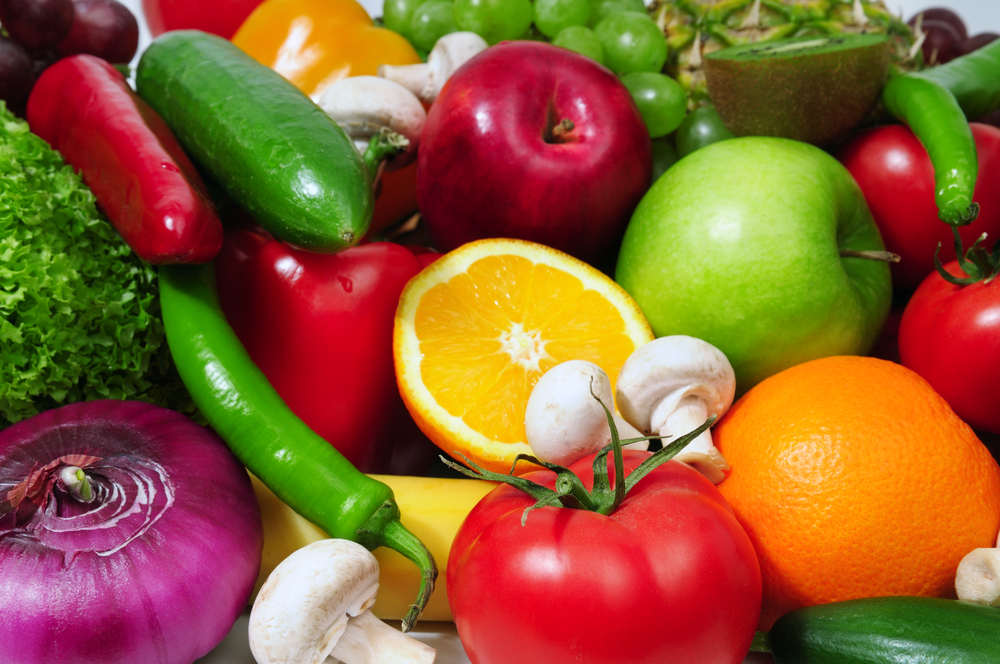The Facts About Organic Foods

Get the world’s most fascinating discoveries delivered straight to your inbox.
You are now subscribed
Your newsletter sign-up was successful
Want to add more newsletters?

Delivered Daily
Daily Newsletter
Sign up for the latest discoveries, groundbreaking research and fascinating breakthroughs that impact you and the wider world direct to your inbox.

Once a week
Life's Little Mysteries
Feed your curiosity with an exclusive mystery every week, solved with science and delivered direct to your inbox before it's seen anywhere else.

Once a week
How It Works
Sign up to our free science & technology newsletter for your weekly fix of fascinating articles, quick quizzes, amazing images, and more

Delivered daily
Space.com Newsletter
Breaking space news, the latest updates on rocket launches, skywatching events and more!

Once a month
Watch This Space
Sign up to our monthly entertainment newsletter to keep up with all our coverage of the latest sci-fi and space movies, tv shows, games and books.

Once a week
Night Sky This Week
Discover this week's must-see night sky events, moon phases, and stunning astrophotos. Sign up for our skywatching newsletter and explore the universe with us!
Join the club
Get full access to premium articles, exclusive features and a growing list of member rewards.
Are you confused about the benefits of buying organic? Well, you're not alone. Fortunately, a study published this month in the Annals of Internal Medicine dispels some myths.
In this study, researchers compared organic and conventional foods (both produce and meat) to determine if there was a difference, in terms of health benefits.
The researchers found that while there are benefits to buying organic, those benefits may be limited to the cleanliness of the food. Researchers concluded that organic foods aren't any more nutritious than conventional foods, and they have about the same likelihood of carrying E. coli bacteria. This is a bit of a shock to some — it's even a little surprising to me.
So, is there any benefit of buying organic? According to the study, with produce, it all comes down to your desire to avoid pesticide residues. Conventional produce carried a 30 percent greater chance of being contaminated than organic produce.
With meat, it's all about exposure to antibiotic-resistant bacteria. Conventionally-raised chicken or pork carried a 33 percent higher chance of being contaminated with this type of bacteria than their organic counterparts, according to the study.
Personally, these reasons to buy organic are enough for me. Call me crazy, but I'd rather not ingest pesticides, or be infected with antibiotic-resistant bacteria. Still, buying organic foods can be hard on the budget. So, here are some tips to buy organic without breaking the bank:
- Shop at farmers' markets: The local farmers' market is probably the best place to get in-season organic produce. Just keep in mind that your local farmer may not have the budget to get USDA certified, so instead of being a stickler for the seal, ask about his or her farming practices.
- Join a CSA: Have you heard about CSAs? The acronym stands for Community Supported Agriculture. When you join one of these programs, you pay a portion of a local farmer's expenses in exchange for weekly boxes of fresh fruit and vegetables from the farm. Some farmers will accept monthly payments, but the norm is to pay upfront. The cost for an entire season might be about $300 to $400.
- Stock up in season: It's no secret that produce is cheaper when it's in season. So, stock up on things you can freeze, and use them throughout the year. Fresh herbs can be kept in the freezer all year long. Fruit can be frozen and used to make smoothies at any time. You can also buy a bushel of tomatoes, and make and jar the sauce.
Healthy Bites appears on MyHealthNewsDaily on Wednesdays. Deborah Herlax Enos is a certified nutritionist and a health coach and weight loss expert in the Seattle area with more than 20 years of experience. Read more tips on her blog, Health in a Hurry!
Get the world’s most fascinating discoveries delivered straight to your inbox.
 Live Science Plus
Live Science Plus












